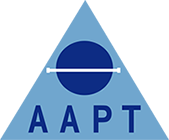News
Academy for Healthcare Science professional registration update
The Academy for Healthcare Science (AHCS) Regulation Council (Regulation Council) read with interest the opinion article on the 8th July by Christian Burt, Secretary to AAPT Council.
The Academy for Healthcare Science (AHCS) Regulation Council (Regulation Council) read with interest the opinion article on the 8th July by Christian Burt, Secretary to AAPT Council.
The article broadly outlines the history and current options regarding regulation for Anatomical Pathology Technologists. It recognises that AHCS was the new, independent voice for healthcare scientists and held the register for APTs when the VRC closed.
The Regulation Council understand the aspiration for statutory regulation and we recognise the frustration felt by AAPT regarding this. AAPT are not alone, many of the Healthcare Science aspirant groups feel the same, however as Christian alludes to in his article there is certainly no appetite for further regulation in law for any healthcare professionals for the foreseeable future.
However where we differ is on the motivation of the professionals and on understanding what statutory regulation can and cannot do. If you believe people who have committed to undertaking a rigorous education and assessment scheme are also committed to not harming patients then why have a large and unwieldy stick that is statutory regulation? Such professionals should seek the ‘kite mark’ of being registered by an independent body that is there for patients and not to promote the profession itself. Employers will recognise an accredited register and understand that professionals registered with such a body have committed to patient safety (although works needs to be done on ensuring all employers understand registration). We have however ample proof that statutory regulation gives you a way of dealing with the few after the fact; it does not prevent the few who harm patients. Everything else is the same in terms of standards for education, articulated proficiencies and a code of professional practice.
So the challenge is to deal with the few that do cause harm or at the very least endanger patients, and it is at that point that we all agree that additional levers need to be in place. Levers that stop the specialist, who it has been proved has caused harm, continuing to work in their field. Surely if we all concentrate on that then patients will be protected to the same standard as those within statutory regulation but in a system that is infinitely more flexible and more responsive than statutory regulation.
What we do have now is the opportunity to protect the public through quality assured registration. The Professional Standards Authority for Health and Social Care (PSA) is mandated by Government to quality assure and accredit organisations that register health and social care practitioners who are not regulated by law. Our register has been awarded PSA accreditation, this quality mark signifies that the Academy has meet the PSA’s high standards in governance, standard-setting, education and training, management of the register, complaints handling and information; assuring the public and employers.
The Regulation Council have not replaced “voluntary” with “professional” as stated in the article, in fact we firmly believe that any regulation activity should be carried out independent of the profession and the professional body. Subject experts for fitness to practice panels are utilised for investigations but the Regulation Council is lay chaired and the Council members are majority lay. We have replaced both “voluntary” and “professional” with “accredited”.
We believe AAPT members taking on important roles such as leadership council appointments should continue to want to be on our Register because it is an independently quality assured, NHS recognised register and that is what sets it apart from other professional registers.
The route to registration with the Academy’s Regulation Council is that which was laid down by the AAPT when the Voluntary Registration Council (VRC) was in operation. The only additional requirement is a Disclosure and Barring Service (DBS) check which is vital for the protection of the patients and public.
The Regulation Council would welcome discussion with AAPT to ensure we address any concerns regarding our processes so that we ensure the registration process is as clear and streamlined as possible while still maintaining the high standards that we all expect.
Patricia Le Rolland
Chair
Regulation Council (AHCS)
Kerry Tinkler
Registrar
Academy for Healthcare Science
